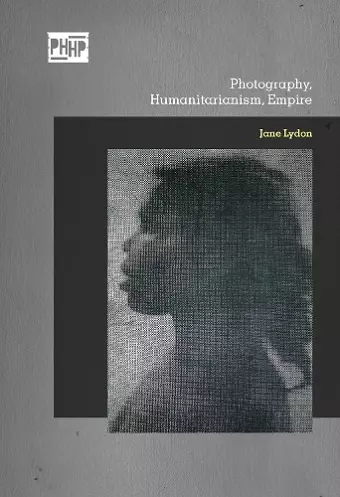Photography, Humanitarianism, Empire
Format:Paperback
Publisher:Taylor & Francis Ltd
Published:9th Feb '17
Should be back in stock very soon
This paperback is available in another edition too:
- Hardback£145.00(9781474235501)

A study of how photography shaped ideas about Aboriginal peoples and influenced changing notions of humanitarianism and colonialism in the mid-19th to mid-20th centuries.
With their power to create a sense of proximity and empathy, photographs have long been a crucial means of exchanging ideas between people across the globe; this book explores the role of photography in shaping ideas about race and difference from the 1840s to the 1948 Declaration of Human RightsWith their power to create a sense of proximity and empathy, photographs have long been a crucial means of exchanging ideas between people across the globe; this book explores the role of photography in shaping ideas about race and difference from the 1840s to the 1948 Declaration of Human Rights. Focusing on Australian experience in a global context, a rich selection of case studies – drawing on a range of visual genres, from portraiture to ethnographic to scientific photographs – show how photographic encounters between Aboriginals, missionaries, scientists, photographers and writers fuelled international debates about morality, law, politics and human rights.Drawing on new archival research, Photography, Humanitarianism, Empire is essential reading for students and scholars of race, visuality and the histories of empire and human rights.
"A significant contribution to the history of humanitarianism, combining valuable descriptions of imagery with a careful analysis of the contexts in which photographs of Indigenous Australians were produced and used. - Johannes Paulmann, Director, Leibniz Institute of European History, Germany
Historically situated yet framed within contemporary debates about human rights, Lydon challenges us to reconsider the photographic archive of colonialism and its legacy. Richly illustrated, and using a diverse range of little analysed source material from the 1840s to the 1950s, Lydon also importantly draws attention to the ethical issues that the research and use of these materials entails. - Gaye Sculthorpe, Curator, Oceania, The British Museum, UK
Lydon presents her argument through clear and concise cases ... She carefully intersperses visual and cultural theories throughout the text in an amount that offers critical perspective without losing the narrative thread of the argument. The publication is also richly illustrated with archival photographs. - Visual Studies"
ISBN: 9781350027435
Dimensions: unknown
Weight: 100g
204 pages